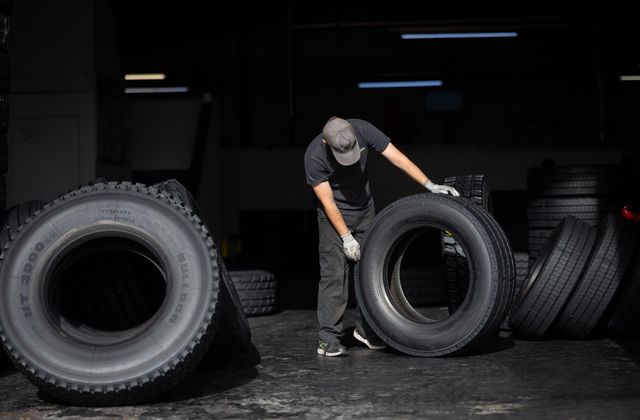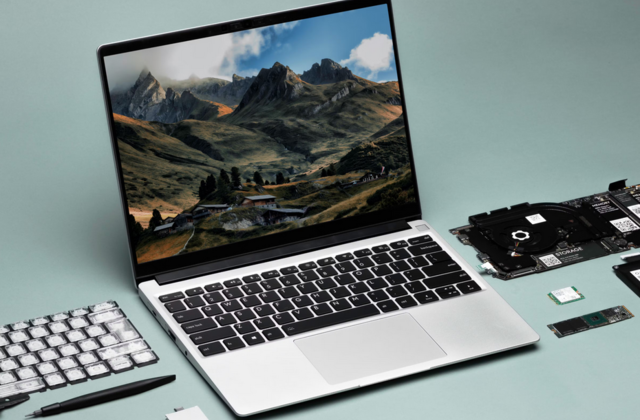Energy using appliances, Mobility
Photo © Lithiumloop
**Lithiumloop has rebranded as encore: https://encore.deutschebahn.com**
What is it? Lithiumloop aims to give used e-car batteries a second life by integrating them in modular energy storage units that can be used to store intermittent energy (e.g., solar PV, wind), can be connected to e-car charging stations and micromobility, or can be integrated in an energy system to balance supply. In addition to extending the life of the batteries and providing a sustainable storage option, the Lithiumloop business model also encompasses transport, set-up and maintenance of the storage system. Initiated as a project in the Deutsche Bahn (German Railway) Intrapreneurs (corporate entrepreneurship and innovation) programme, Lithiumloop is in the process of building up an independent business and bringing the product to market (as of summer 2021).
Why is this important? Electric cars are seen as one important option for a sustainable future in mobility and transport. Yet, in order to power them, the cars require batteries that contain precious, finite resources, such as Lithium and Cobalt. In 2013, only 5% of Lithium-ion batteries were recycled in the European Union (Friends of the Earth Europe, 2013), meaning that a large amount of those resources is lost. Additionally, even with increased capacities, such material recycling is not the preferred step in a circular economy; instead, batteries should be reused if still functional. On average, an electric car battery is replaced after 7-9 years when it no longer holds the storage capacity required for the car (Lithiumloop, 2021a). Yet, after that use phase, e-car batteries still hold around 70% of their original capacity which means they remain perfectly suited for further use in other storage systems, such as home energy storage or storage for renewable energies (Gardiner, 2017).
Main resource strategy: Slowing the loop by extending the life of used batteries through integrating them in modular storage systems.
Other resource strategies: Closing the loop by ensuring batteries are adequately recycled after their extended lifetime.
Business model aspects:
- Value Proposition: Lithiumloop offers modular energy storage systems made from previously used electric car batteries that have been tested and integrated into the system for a second life. In addition to being more environmentally friendly, Lithiumloop storage systems are also intended to cost 15% less than newly produced ones (Lithiumloop, 2021b). The core target customers are businesses that want to store energy in a sustainable way and are interested in saving costs in their energy supply (Lithiumloop, 2021a). Energy storage systems such as Lithiumloop can also support organisations that produce their own electricity through intermittent renewables or those who would like to purchase electricity at lower price hours (Lithiumloop, 2021a). Since Lithiumloop is a modular system, it can be scaled to suit the customers’ needs (Lithiumloop, 2021b).
- Value Creation & Delivery: Lithiumloop will collect the batteries, check them and undertake any necessary refurbishment, then integrate them into the modular energy storage system and provide the system to the customer. Customers are recruited either directly (B2B) or through intermediaries that provide full energy systems (B2B2B) (Lithiumloop, 2021a). Lithiumloop also performs the maintenance for the storage systems. In order to ensure battery compatibility in their modular storage systems, Lithiumloop is in conversation with electric car producers about future collaboration.
- Value Capture: Value is captured through the sales of the refurbished batteries in modular energy systems (Lithiumloop, 2021a).
Business model experimentation practices: Having originated from the DB Digital Trainee programme, the Lithiumloop project was further developed in DB Intrapreneurs (corporate entrepreneurship and innovation programme) (DB Intrapreneurs, 2021). Following an extensive preparation of the business model and assessment of market opportunities, Lithiumloop has received funding from DB Bahnbau Gruppe and will be established as its own business in autumn 2021. The first energy storage units will be produced and available for sale in 2022.
Sustainability outcomes: Lithiumloop assumes a lifetime extension of 150% for batteries integrated in their energy storage systems (Lithiumloop, 2021b).
Sources:
DB Intrapreneurs (2021). Lithiumloop. Accessed 2 July 2021 at https://intrapreneurs.deutschebahn.com/lithiumloop/.
Friends of the Earth Europe (2013). Factsheet Lithium. Accessed 2 July 2021 at http://www.foeeurope.org/sites/default/files/publications/13_factsheet-lithium-gb.pdf.
Gardiner, J. (10.08.2017). The rise of electric cars could leave us with a big battery waste problem. The Guardian. Accessed 2 July 2021 at https://www.theguardian.com/sustainable-business/2017/aug/10/electric-cars-big-battery-waste-problem-lithium-recycling.
Lithiumloop (2021a). Lithiumloop internal project presentation. Presented at 04.06.2021 to Bahnbau Gruppe.
Lithiumloop (2021b). Lithiumloop. Accessed 2 July 2021 at https://www.lithiumloop.de/.
***
About project Circular X
Project Circular X is about ‘Experimentation with Circular Service Business Models’. It is an ambitious research project funded by the European Research Council (ERC) which supports top researchers from anywhere in the world. Project CIRCULAR X runs from 2020-2025. The project is led by Principal Investigator (PI) Prof Dr Nancy Bocken, who is joined by a multidisciplinary team of researchers at Maastricht Sustainability Institute (MSI), Maastricht School of Business and Economics, Maastricht University. The project cooperates with businesses who want to innovate towards the circular economy.
Project Circular X addresses a new and urgent issue: experimentation with circular service business models (CSBMs). Examples of such new business models include companies shifting from selling products to selling services and introducing lifelong warrantees to extend product lifetimes. However, CSBMs are far from mainstream and research focused on experimentation is little understood. The research aims to conduct interdisciplinary research with 4 objectives:
- Advancing understanding of CSBMs; their emergence and impacts
- Advancing knowledge on CSBM experimentation
- Developing CSBM experimentation tools
- Designing and deploying CSBM experimentation labs
Funding source
This project has received funding from the European Research Council (ERC) under the European Union’s Horizon 2020 research and innovation programme, grant agreement No. 850159.
Using this information
When you cite this publication, please use the following source:
Circular X. (2021) Case study: Lithiumloop - New life for used e-car batteries. Accessed from www.circularx.eu



